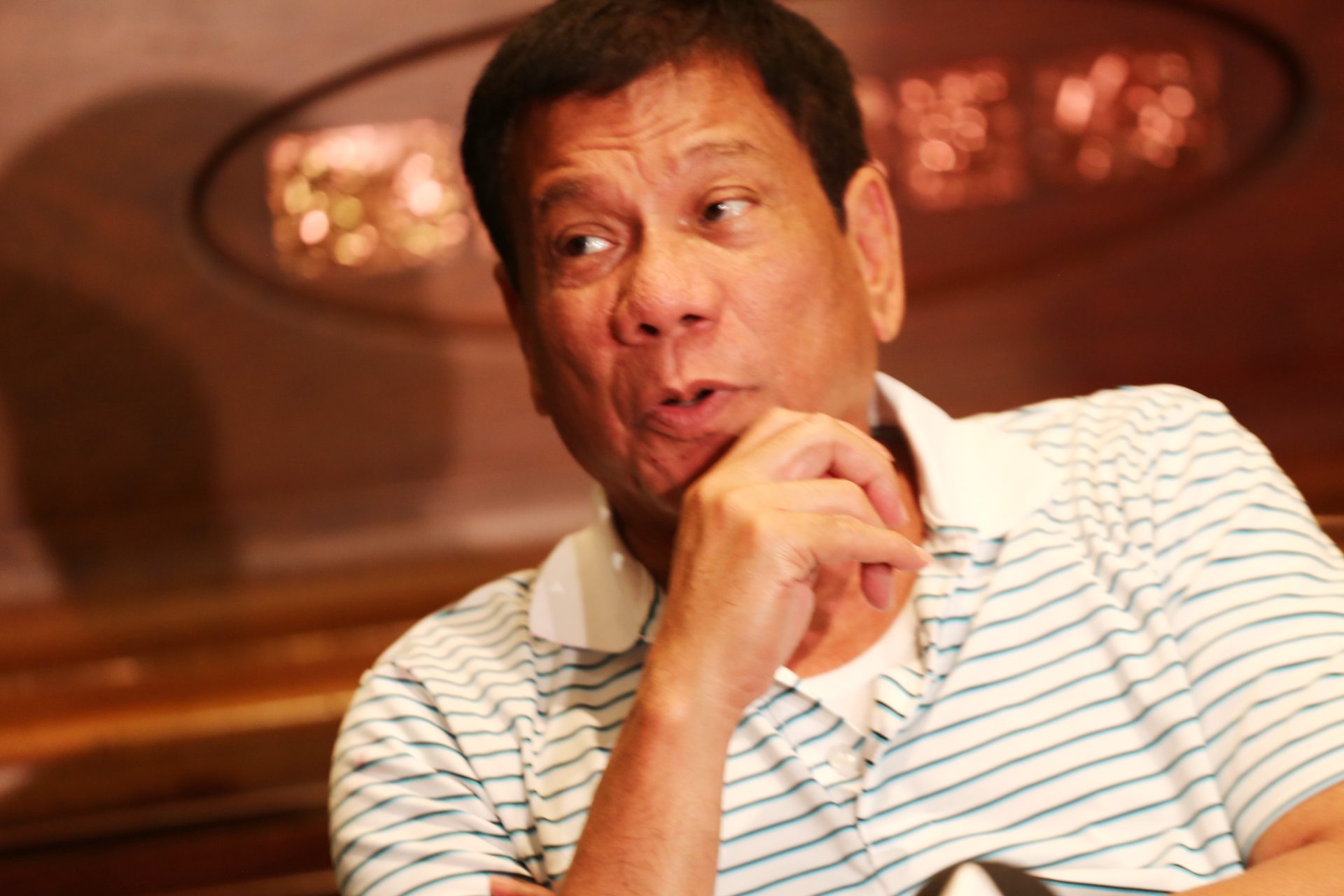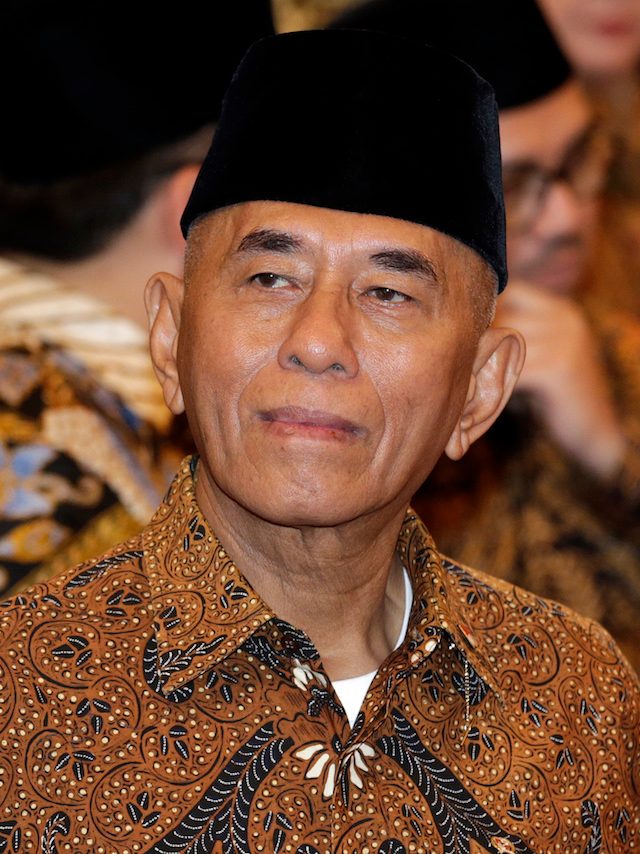SUMMARY
This is AI generated summarization, which may have errors. For context, always refer to the full article.

JAKARTA, Indonesia – What does Indonesia’s Defense Minister think about the likely shift of approach of the Philippines towards China?
Defense Minister Ryamizard Ryacudu said he thinks the new administration will be a lot more “lenient,” adding Philippine president-elect Rodrigo Duterte appears to like China more than the administration of outgoing president Benigno Aquino III.
“From what I see, this new leader seems like he doesn’t really hate China,” Ryacudu told foreign journalists on Friday, June 17.
He said he foresees a “slight shift” on policy towards China under Duterte, and while he said Indonesia would stay “neutral” and “set aside impartiality in settling the dispute,” the Minister did imply some support for the incoming Philippine president.
“I think he is more lenient than the previous administration. I think there should be more leniency,” he said.

He later added, he was “not concerned” about a more lenient policy and admitted, “I hope the new administration will improve relations with China.”
Ryacudu also said he wants to learn more from the Philippines on their view on the South China Sea but emphasized that Indonesia “should not interfere with the Philippines’ stance.”
The Indonesian official was referring to tensions between the Philippines and the superpower due to overlapping claims in the South China Sea.
The Philippines, Taiwan, Brunei, Malaysia, and Vietnam have competing claims to parts of the sea, which is believed to harbor significant oil and gas deposits.
Beijing has bolstered its claims by building artificial islands including airstrips in the area, some of which are suitable for military use.
Citing the United Nations Convention on the Law of the Sea (Unclos), the Philippines is challenging China’s 9-dash line, which the Asian superpower uses to claim virtually the entire South China Sea.
The 9-dash line encroaches on the Philippines’ 200 nautical mile exclusive economic zone (EEZ), affecting Manila’s exclusive rights to fish in these waters. It also covers the high seas, which, under the Unclos, are part of the global commons and are open to all states.
The international tribunal at The Hague is expected to issue a ruling on the historic case filed by the Philippines in a few weeks.
Chinese threat
The minister also mentioned the need to be alert regarding maritime threats but said he did not think Indonesia was in any danger of war with China, adding “dialogue and transparency” were key to dealing with the superpower.

His optimistic statement comes, following recent rows between the nations – particularly after Indonesia sought to detain a Chinese vessel which was allegedly fishing illegally near Indonesia’s Natuna Islands.
Beijing has claimed some areas around waters in Indonesia’s exclusive economic zone north of the Natunas.
When it was pointed out that China had began to build air strips in some disputed islands in the South China Sea however, Ryacudu conceded that it appears China could be preparing for war.
But Ryacudu still maintained that he does not foresee any threats to Indonesia, adding he was close to both his American and Chinese counterparts.
Breeding nationalism
The minister also talked about the importance of a “Defend the Nation” program, a state defense voluntary program to provide military training for civilians starting kindergarten.
He said that while there is no imminent threat to the country, the program will breed nationalism.
He also emphasized that he will not give civilians weapons, but said that 200 million people with military training will deter threats.
There are about 250 million people total in Indonesia.
His statement is also contradictory to a previous claim by the military’s spokesman who said civilians would be given semi-military weapons training – which raised concerns among experts and human rights activists.
He said the national defense program would “build nationalism” and “support the nation’s defense against threats” and will be “a tool to strengthen the national identity against left-wing and right-wing radical ideology, and other radical ideologies.”
Among these radical ideologies, Ryacudu, who is a hardline ex-general, mentioned communism and terrorism, specifically ISIS-inspired attacks. In the past, he also mentioned homosexuality as a destructive foreign influence that must be defeated.
Ryacudu was previously quoted as having said the lesbian, gay, bisexual, and transgendered (LGBT) movement in Indonesia was more dangerous than nuclear warfare since it threatens to undermine the state’s sovereignty through a proxy war.
Fighting communism
The minister was also quoted earlier this month saying that the estimated 500,000 who died in a government-backed attack on alleged communists “deserved to die.”
The massacres began after General Suharto put down a coup blamed on communists in 1965, and over several months local militias backed by the military carried out one of the worst mass killings of the 20th century.
Suharto rose to power on the back of the bloodshed and during his 32-year rule it was presented as necessary to rid the country of communism, debating the killings publicly was taboo, and no one was ever held to account.
But on Friday, Ryacudu again warned against about the threat of communism returning.
“We don’t hate communists. But they staged several coups so we need to exercise vigilance,” he said. – Rappler.com/with reports from Agence France-Presse
Add a comment
How does this make you feel?
There are no comments yet. Add your comment to start the conversation.